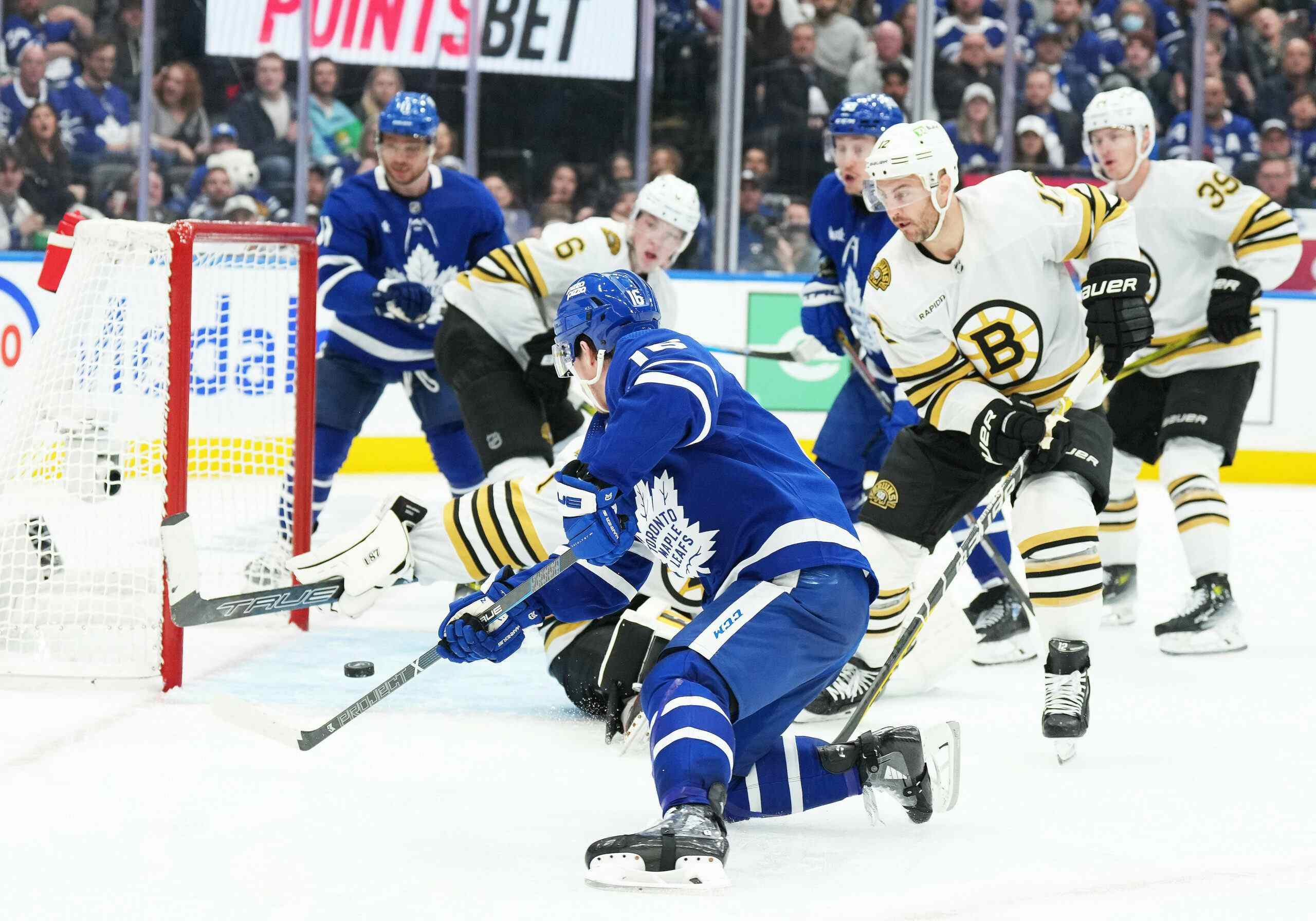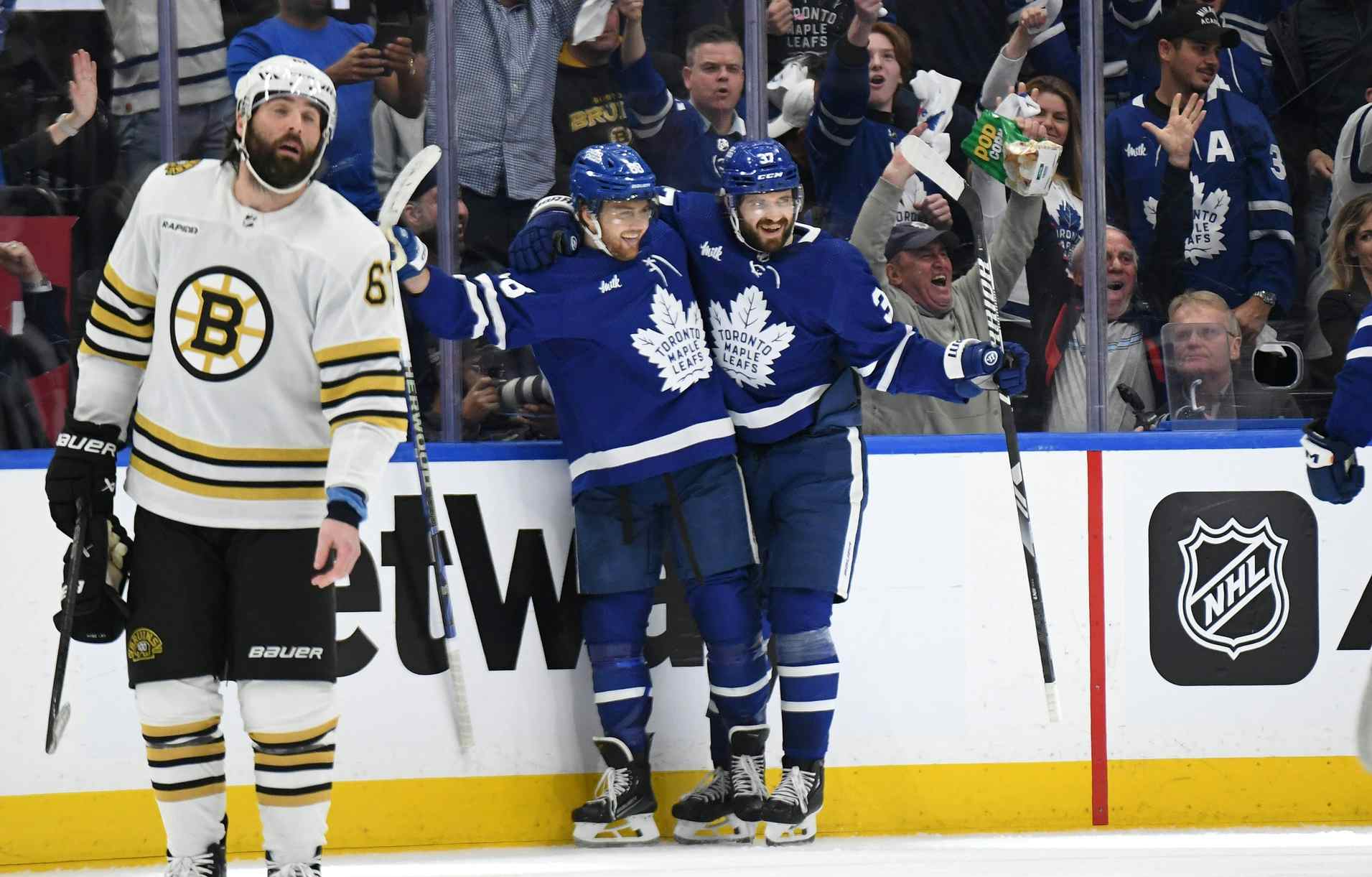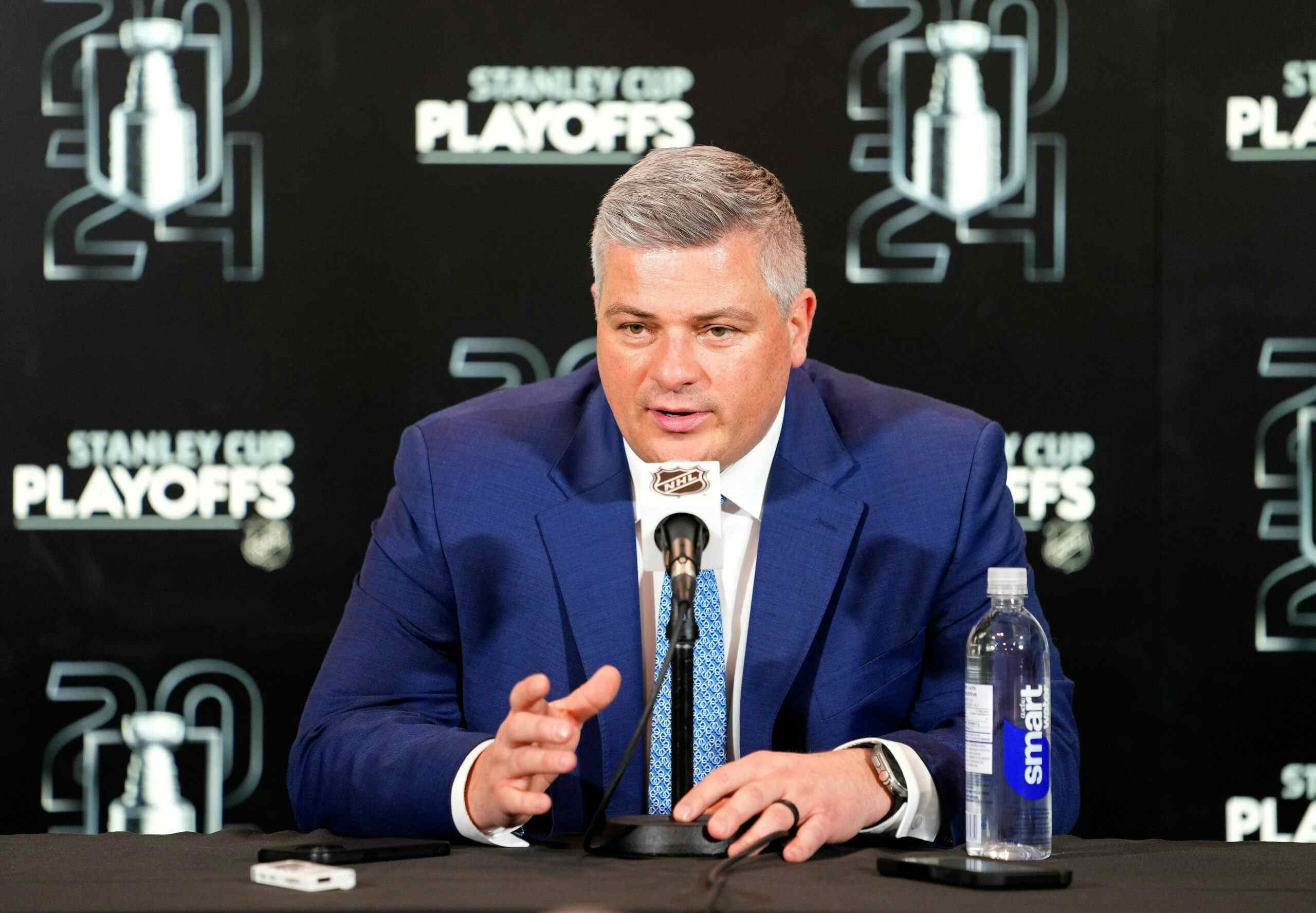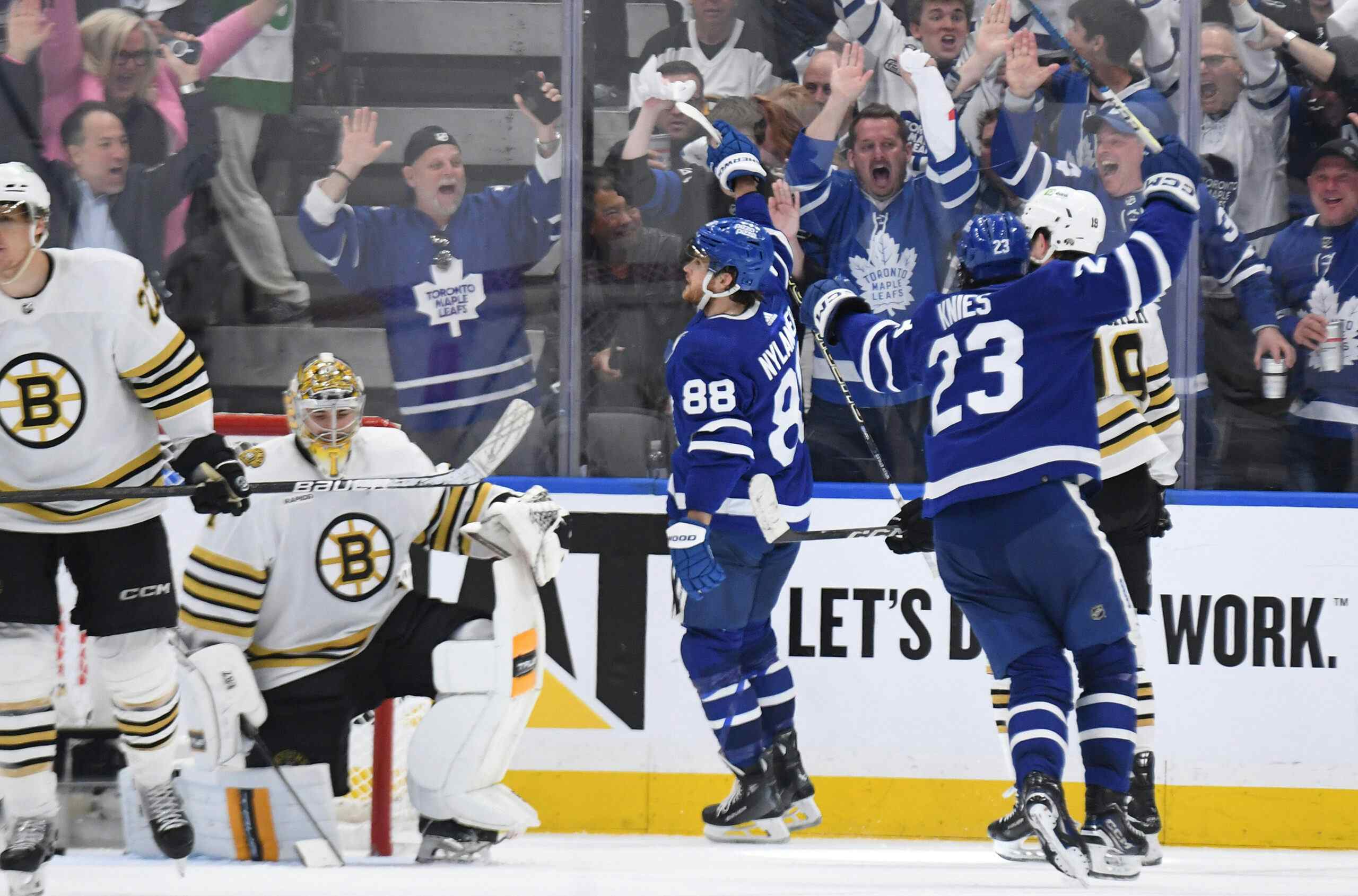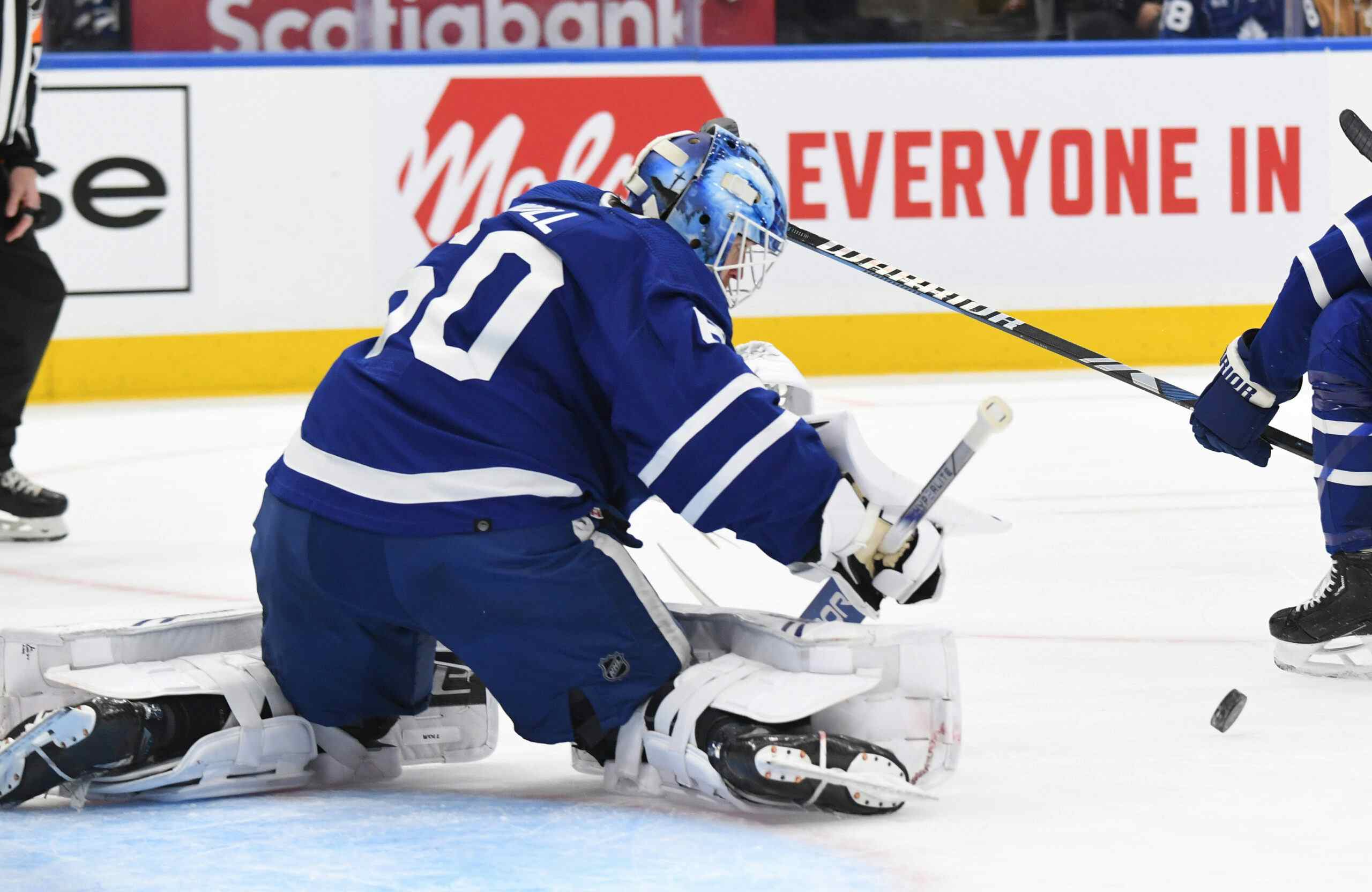The Morning After, and Beyond

It’s almost exactly like I imagined it to be.
An initial punch to the stomach at the hands of an inexperienced defenceman. Bad thoughts seeping through, until the very same guy takes your villainous feelings and turns them into heroism, tying the game and taking the lead. The young star forward, with the weight of the world on his shoulders, having the period of his life. Those intense final minutes, followed by four blares of that iconic goal horn, and "Zombie Nation" as the crowd cheers.
Exactly like I imagined it as a kid. Except I didn’t really see the Boston Bruins taking Toronto’s post-goal festivities and possibly giving millions of people in the Greater Toronto Area and beyond a severe case of PTSD.
I mean, it’s the weirdest thing. As you can see, I had little to no expectations for the Leafs going into this series.
As the opening game unfolded, I saw no reason to change that opinion. It wasn’t a blowout like some of the worst games this season series has presented over the past couple of years, but Toronto still looked like a team unready for the occasion. Rather than trying to play their own game (admittedly not a strong one), or trying to play around Boston’s strengths, they tried to face them head on. Something that becomes evident quickly is that you can’t beat a team by trying to become them.
Then, something amazing happened. Rather than trying to punch the Bruins out, Carlyle sent his cavlary out skating. Grit and general toughness were still factors, but the Leafs looked beyond goonery and focused on controlling pace and tempo. Game two gave them a win to come home with. Boston came out ahead in the next two games, but the Leafs put up a fight to the end in both games. Needless to say, many had accepted the series to be done.
To go back out there, stick to the game plan, and drag this series out to not just a sixth, but a seventh game, is more than I possibly could’ve imagined this team doing. To take control of Game 7, even if they let it slip away, didn’t even feel like a real event. It’s almost fitting that Game 7 was ultimately lost, a crash of reality after several days of what felt like pure fiction.
No expectations. But somehow completely floored (I haven’t even watched the highlights or post-game media scrums yet) by the end result, despite it being better than expected. Yet not enough.
Anyway, there’s a lot to take away from the loss of this series.
An Immediate Silver Lining
First round eliminations are frequently a part of the process for winning teams.
- Los Angeles won the Stanley Cup in 2012. After six years of missing the playoffs, they lost in the first round in 2010 and 2011 before going all the way.
- Boston won in 2011. They returned to the playoffs in 2007-08, and lost to Montreal in a first round, 7 game series. Giving them a reason for optimism? A sophomore Phil Kessel, who scored 4 points in 4 games.
- Sidney Crosby and the Pittsburgh Penguins capped off their exponential rebuild in 2009 with a Stanley Cup win. After four years near the bottom of the league, they returned to the playoffs in 2006-07. The Ottawa Senators swiftly beat them in a five game opening round matchup. The two teams played again in the same round the next year, and the Penguins swept the series. They lost to Detroit in the finals, the very same team they’d beat the following year.
- Speaking of Detroit, their situation is a little bit different because the 2008 team was over a decade and a half removed from their playoff return, but seeing as the team uses a bit of a trickle system to evolving their roster, it’s worth noting that they also returned with a first round loss in 1990-91. In fact, they had three of them in their first four years, one at the mercy of the Leafs, before going to the finals in 1995 and winning it all in 1997 and 1998. In 2001, they had a first round loss before winning the following year, and a first round upset at the hands of the Edmonton Oilers in 2006 lead them towards a much stronger team for the following three years.
- Odds-on favourites Quebec were shocked to lose in the first round of the 1995 playoffs after missing the post season the year before. The same team, in a new city won the 1996 Stanley Cup as the Colorado Avalanche.
- The New Jersey Devils had not one, but four straight first round exists before going to the conference finals and eventually winning the 1995 Stanley Cup team. The years before both the 2000 and 2003 championships had first round exits as well.
There are plenty more examples in NHL history to use, and this is far from a surefire indicator of success, but a first round exit is frequently a stepping stone for new-look teams on their path to the promised land.
It’s Getting Better (Man!)
I’ll level with everybody a bit on the realism front; there’s still a lot of work to do with this team. At the end of the day, while the playoffs are the place where anything can happen (as we clearly saw, in both a good and bad way), you still need to get there next year. I’m reminded of when the Toronto Argonauts won the Grey Cup last year, and TSN’s play-by-play crew counted down the final seconds by pointing out that the team needs to do a lot to make sure they’re competitive next season. The regular season Leafs had the worst ratio of shots-for to shots-against in the league (13 of 16 playoff teams were in the top 16). Having a great combination of shooting percentage and save percentage is cool, but not something you bank on. I can go on, but my point is this: if the Leafs are aware that staying the course is incredibly risky, there’s a lot of good to be taken out of this year.
- The Leafs look to be in a very good place between the pipes, at least for now. At a combined $2,412,500 per year, it’s not hard to argue James Reimer and Ben Scrivens as the most efficient goaltending duo in the league. With contracts pro-rated, the Leafs paid just $998 per save, which I would have to assume is among the lowest if not the lowest in the league (Vancouver, by comparison, paid $4288/save to Luongo and Schneider). Combine that with a 0.921 total save percentage (because otherwise, two 0.875 goalies that make league minimum would crush such a ranking), and the Leafs are in a good spot if these two keep it up. Both are young, and both of their stat lines don’t look outrageous compared to their past, so there’s reason to believe it to be possible. In hindsight, I’m glad this thing looks dumb.
- Nazem Kadri may not ever be as consistently good as he looked at his peak this year (his comparable at his age, at one point, was Sidney Crosby), but it’s obvious that the occasional fear of him not panning out was over dramatic in hindsight, and the Leafs have a legitimate top six centre in their hands, both now and in the future. He brings undeniable skill and energy to every game he plays, and has won over the hearts of a city.
- Phil Kessel is now undeniably an elite NHL winger . He’s now been point-per-game for about 150 games in blue and white, despite most of that being with questionable centres. People expected him to crumble under the pressure of playing his former team in this series, and instead, he scored four goals in seven games (leading the team!) including scoring two of the three game winners, while the trade return that everybody complains about combined for a whopping one assist.
- In fact, it seems this entire Boston "dragon" has been slayed; what was once an automatic loss will now be seen by this team as games that are highly winnable as long as they stick to what they’re good at, rather than trying to out-Bruins the Bruins.
- Dion Phaneuf has done an incredible job, eating up minutes against undeniably strong competition. He did make a costly mistake in this series. But he was nothing short of fantastic for the Leafs all year, did a solid job of shutting down his main assignments in the series, and generally showed why he’s the player and captain the Leafs need.
- Jay McClement’s radical "win the draw, get the puck, get it out, and keep forcing it out" strategy on the penalty kill was very important in keeping the Leafs afloat this year. Simply put, if the Leafs stay weak shorthanded, they’re out of a playoff spot. Instead, they finished in the top 5 for the first time in ages.
- Joffrey Lupul appears to not be a fluke, though he really needs to not get hurt as much, and that shooting percentage of his is too scary to deal with with a level head right now.
- It’s weird to say that your best player in a playoff series was the forward who finished tied for ninth in points, but Mikhail Grabovski made a case for it. Snakebit throughout the year, tossed around the lineup, and tossed around by opponents, the Belarussian centre put out an insane amount of effort and played a plethora of different roles in the process. A lot of Leafs players are due to cool down, but next year could be a big one for him.
- Leo Komarov makes everybody hate him while being a decent hockey player, and it’s hard not to love him for it.
- In a series nearly won by mobility, a point-per-game James Van Riemsdyk came in very, very handy. Brian Burke was very hesitant to trade Luke Schenn, but when he did, he hit a grand slam.
- Clarke MacArthur’s press box exile made little to no sense, but he spent no time sulking and came back strong. It’ll be interesting to see if the Leafs make an effort to retain him this offseason.
- Similarly, Jake Gardiner stepped up to the occasion the second Carlyle finally handed him the opportunity. It’s good to see that he took the mess that was this year in stride and put his full focus on the ice.
- Cody Franson has made signing Brett Lebda look like a low-key genius move, in hindsight.
Really, I could go on about almost every player that played in this series and during the season and gush about how there’s glimmers of light in their games compared to before. But that’s what happens when you take a bunch of young, developing players and let them go through the process. Improvements are made, and you build and evolve from their successes and mistakes. This season was a step in the right direction for a lot of players, and for the team in general, and as long as they keep looking to improve, good things will happen.
Is This Any Better?
There’s a lot of weird emotion going around right now. Heartbreak does that to a group of milllions. Was collapsing in a Game 7 better than missing the playoffs entirely? Would a better draft pick be preferable to an extra couple of weeks? From both a team and fan perspective, the answer is undeniably yes.
When push comes to shove, a team typically doesn’t burst out from the basement to the rooftop. There’s no teleporter, but rather a flight of stairs that must be climbed. Next year, there won’t be a couple of players with playoff experience, but rather a couple of dozen. Before last night, just five Leafs have ever experienced a Game 7. Now, twenty of them have, and they all have a chip on their shoulder after what happened.
Moving forward, they’ll be hungrier than they’ve ever been. More experienced than they’ve ever been. Now, knowing that all 29 other teams in this league are beatable if they play their game. All of the 29 other teams now know that the Toronto Maple Leafs aren’t just existent, but a team to worry about. As much as I like the stats side of the game, emotion is still crucial, and a loss like this is emotionally important to a team moving forward.
For the fans? Some will say this shouldn’t count, because it’s the result of a post-lockout scramble. Ask the New Jersey Devils fans how they feel about their first championship. Ask the fans of the Carolina Hurricanes. Nobody can take away from you, or the tam, the excitement that you’ve felt over the past weeks and months. The NHL, from a fan perspective, is an entertainment product, and this team has captivated and entertained a city.
You all got to wear your jerseys with pride again. The team got to be proud of themselves as they wore the same blue and white. You all got together, whether it was in the ACC, outside of it, at your local bar, with your families, with your friends, or even just yourself. You cheered, you booed, you were happy, you were sad, you felt pure bliss, and you felt pure heartbreak. The team fought and clawed through months to get the same emotions. It counts. It’s better than not being here. Don’t let anyone take that away from you, or the team. Because they’re wrong.
"Just wait for next year!" was always a phrase that was said with nervous, half-hearted undertones. This time around, everybody will be coming back with a taste of what’s possible, and wanting a buffet.
Let the countdown to October begin.
Recent articles from Jeff Veillette

